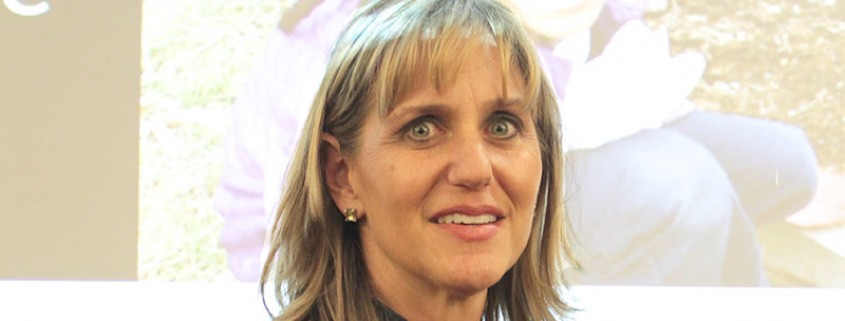USC professor presents her new book on food in LA
Assistant Professor Sarah Portnoy hosted an event on Tuesday to celebrate her new book, Food, Health, and Culture in Latino Los Angeles. The book highlights the rich history of Latino cuisine in Los Angeles, the contemporary Latino food scene and the various struggles for food justice the Latino community faces, especially in South Los Angeles.
Only 200 miles from the Mexican border, Los Angeles has the largest Latino population in the United States. Portnoy, however, explained that this isn’t the only Latino influence in Los Angeles. Immigrants from Central and South America have made their mark on the city, and because of this, Latino food has skyrocketed in popularity.
“Latino cuisine in Los Angeles is more interesting and innovative than ever,” Portnoy said. “Mexican food is by far one of the most popular, complex and widely available cuisines, but Southern Californians are also branching out and exploring cuisines from Peru, Argentina, El Salvador and beyond, as well as Mexican-influenced fusion flavors that range from sushi burritos to kimchi quesadillas.”
Portnoy said that despite the popularity of Latino cuisine and chefs, there continues to be a divide between the quality and healthiness of food available at restaurants and food trucks and what is available in food deserts like South Los Angeles, which is home to many low-income and urban Latinos. According to Portnoy, in South Los Angeles, grocery stores only make up two percent of all food options causing the majority of the population to turn to unhealthy and fast food alternatives. This has led to 70 percent of adult Latinos and 35 percent of children in some communities to become obese.
Several community-based organizations in attendance explained the difficulties in accessing healthier options and their efforts to combat the lack of healthy food, diabetes and obesity by establishing community gardens and programs.
Kathryn Kocarnik, co-director of Garden School Foundation, an interdisciplinary program of education that teaches garden-based learning at elementary schools, explained that children love their communities, learning about healthy eating and creating their own urban gardens.
“A lot of our students don’t have access to land where they can get their hands dirty,” Kocarnik said. “The kids talk about coming into the garden, and they talk about wanting to come to school because they can go into the garden.”
Similarly, directors at community-oriented organizations Groceryships and With Love Market and Cafe explained the astounding impacts that health education has on the low-income Latino population.
“The heart of our program is a 20-week model, teaching about not just nutrition but building community around healthy lifestyles,” Dana Rizer of Groceryships said. “Based on this understanding that health is not just physical, health is emotional, health is mental. A lot of the decisions we make about food come from very emotional places. They also come from very real economic places. So, it doesn’t really work to teach people that eating more vegetables is the healthy thing to do. We have to integrate it with the cultures that we’re working with.”
Karla Vasquez, director of community programs at With Love Market and Cafe explained the goals of their community project.
“We’re here to provide opportunities for our neighborhood and our community to be healthy in as many ways as possible,” Vasquez said. “We do host community cooking classes. We do have a free yoga class Mondays at 6 p.m. But, we also make an effort to create opportunities for creative outlets like open mics so individuals can share what’s on their hearts. These outlets make a real big difference. It’s empowering a community.”


Food justice is real. As one who has lived in LA, Oakland and Sacramento – if you’re in the wrong zip code, you’re gonna have to travel a bit to a real grocery store. I love what Governor Brown was doing in Oakland as mayor helping to build affordable urban housing with REAL grocery stores within those developments. #Healthylatinos.